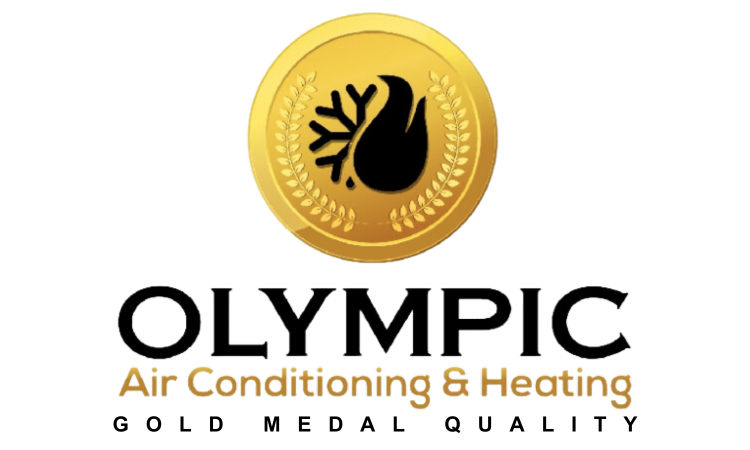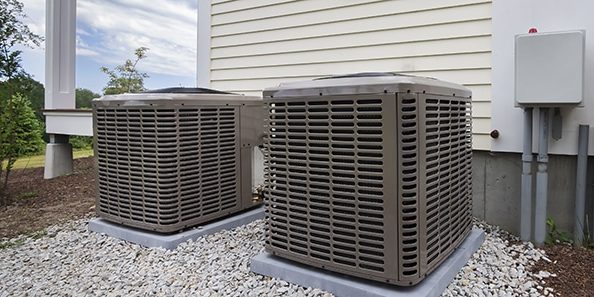In Deltona, FL, where the summer heat and seasonal humidity are part of daily life, the reliability and performance of your HVAC system aren’t just about comfort—they’re essential to well-being. But beyond personal convenience, there’s a larger picture that often goes unnoticed: the environmental impact. Proper HVAC maintenance and timely repairs can significantly reduce your carbon footprint while saving money and enhancing home efficiency. This makes HVAC care not just a smart choice—but a responsible one for our planet and our community.
Key Takeaway:
Regular HVAC maintenance and repairs help reduce energy waste, extend system lifespan, and minimize harmful emissions—contributing to a cleaner, healthier environment in Deltona and beyond.
How Proper HVAC Care Reduces Energy Consumption
Efficient Systems Use Less Power
When your HVAC system is clean, well-lubricated, and free of clogs or leaks, it performs its job using less energy. Dirty filters, blocked ducts, or failing components force the system to work harder to maintain indoor comfort, leading to increased energy usage. According to Wikipedia’s article on air conditioning, inefficient systems consume significantly more power than those that are regularly maintained.
Lower Energy Bills Mean Lower Emissions
Every kilowatt-hour saved through optimized HVAC performance translates into fewer greenhouse gases emitted by power plants. Maintaining your system is a direct way to support sustainability, especially when local utility providers rely on fossil fuels for electricity generation. For homeowners in Deltona, this means contributing less to air pollution while enjoying monthly savings.
Thermostat Precision Enhances Efficiency
A well-maintained HVAC system communicates accurately with your thermostat, ensuring that temperatures are controlled without unnecessary energy spikes. Misaligned thermostats or faulty sensors can trigger excessive cycling, draining energy unnecessarily. Scheduling professional inspections ensures that even small components like sensors and wiring are working harmoniously to conserve power.
Extending HVAC Lifespan to Avoid Early Waste
Preventing Premature Equipment Disposal
HVAC units aren’t disposable commodities—they’re complex machines that contain metals, refrigerants, and electronics. When these systems are replaced too early due to neglect, they often end up in landfills or scrapyards. Investing in routine service and HVAC repair in Deltona extends their usability and delays wasteful disposal.
Replacing Parts Before System Failure
One failing component can impact the entire system. For example, a damaged compressor or leaking coil can cause the unit to break down entirely. Scheduled maintenance detects these issues early, replacing individual parts instead of the whole system. This practice aligns with sustainable living by reducing unnecessary manufacturing and landfill accumulation.
Protecting Natural Resources
Manufacturing HVAC units requires raw materials like copper, aluminum, and plastics. Frequent replacements increase the demand for these resources, contributing to mining and industrial emissions. Regular upkeep helps preserve these finite materials by keeping existing systems in use longer.
Reducing Refrigerant Leaks and Chemical Emissions
Avoiding Harmful Discharges
Refrigerants are essential for cooling, but when they leak, they can be damaging to the atmosphere. Older refrigerants like R-22 are particularly harmful to the ozone layer. Even newer ones can act as greenhouse gases. Professional maintenance detects leaks early, preventing these chemicals from escaping into the environment.
Safe Handling Through Repairs
When refrigerant issues do arise, certified technicians from companies like Olympic Air Conditioning & Heating follow safe recovery and disposal practices. These services are a responsible way to ensure compliance with environmental regulations and prevent damage to ecosystems.
Upgrade Guidance from Experts
When it’s time to replace an old HVAC unit, professionals can recommend energy-efficient models like heat pumps, which use advanced technology to reduce energy waste. According to Wikipedia’s article on heat pumps, these systems can provide both heating and cooling with less impact on the environment.
Supporting Indoor Air Quality and Eco-Friendly Homes
Cleaner Air, Cleaner Planet
Dusty vents and clogged filters don’t just hinder performance—they also circulate allergens and pollutants. Regular maintenance ensures cleaner indoor air and healthier respiratory conditions for your family, all while maintaining an energy-efficient system.
Moisture Control Prevents Mold Growth
In humid places like Deltona, FL, unchecked HVAC issues can create excess moisture, leading to mold. Mold remediation often involves harsh chemicals and energy-intensive cleaning processes. Preventative care eliminates these needs by controlling humidity naturally.
HVAC’s Role in Green Construction
HVAC systems are integral to sustainable building design. As seen in Wikipedia’s home construction overview, modern eco-friendly homes prioritize energy-efficient mechanical systems. By keeping your HVAC system optimized, you’re contributing to the broader green building movement in Florida and beyond.
Empowering the Community Through Sustainable Practices
Community-Wide Impact
When many homeowners in Deltona commit to HVAC maintenance, the cumulative effect reduces strain on local power grids, especially during peak summer demand. This helps prevent blackouts and lowers the city’s overall carbon footprint.
Setting a Positive Example
Homeowners who prioritize maintenance become local advocates for environmental care. Sharing tips and choosing eco-conscious services, like those from Olympic Air Conditioning & Heating, sets an example for neighbors and future generations.
Access to Maintenance Plans
Enrolling in structured maintenance plans ensures consistent service, scheduled checkups, and peace of mind. These plans not only support environmental goals but also protect your investment and comfort all year long.
Answering Common Questions
How often should I schedule HVAC maintenance?
Experts recommend at least two inspections per year—one before the cooling season and one before heating season. These visits help catch minor issues before they become major, and they improve system efficiency.
What are signs my system needs repair or maintenance?
Unusual noises, inconsistent temperatures, rising energy bills, and frequent cycling are all red flags. Any of these can indicate airflow restrictions, refrigerant leaks, or component malfunctions that should be addressed quickly.
Can proper maintenance really make a difference for the environment?
Absolutely. Reduced energy usage, lower emissions, and less material waste from early replacements all contribute to a cleaner environment. Even small improvements in HVAC efficiency can scale to significant ecological benefits when practiced community-wide.
Why Local Climate Conditions Influence HVAC Efficiency
Deltona’s humid subtropical climate places extra stress on HVAC systems, especially during long, hot summers. Systems that aren’t maintained struggle to cool homes efficiently and may cycle more frequently. This results in energy spikes and faster wear, making regular maintenance essential in this region.
How HVAC Maintenance Interacts with Sustainable Construction Goals
Sustainable construction focuses on long-term energy efficiency, water conservation, and indoor air quality. Your HVAC system plays a central role in all three. A well-maintained system helps builders and homeowners meet green building standards and certification programs like LEED.







